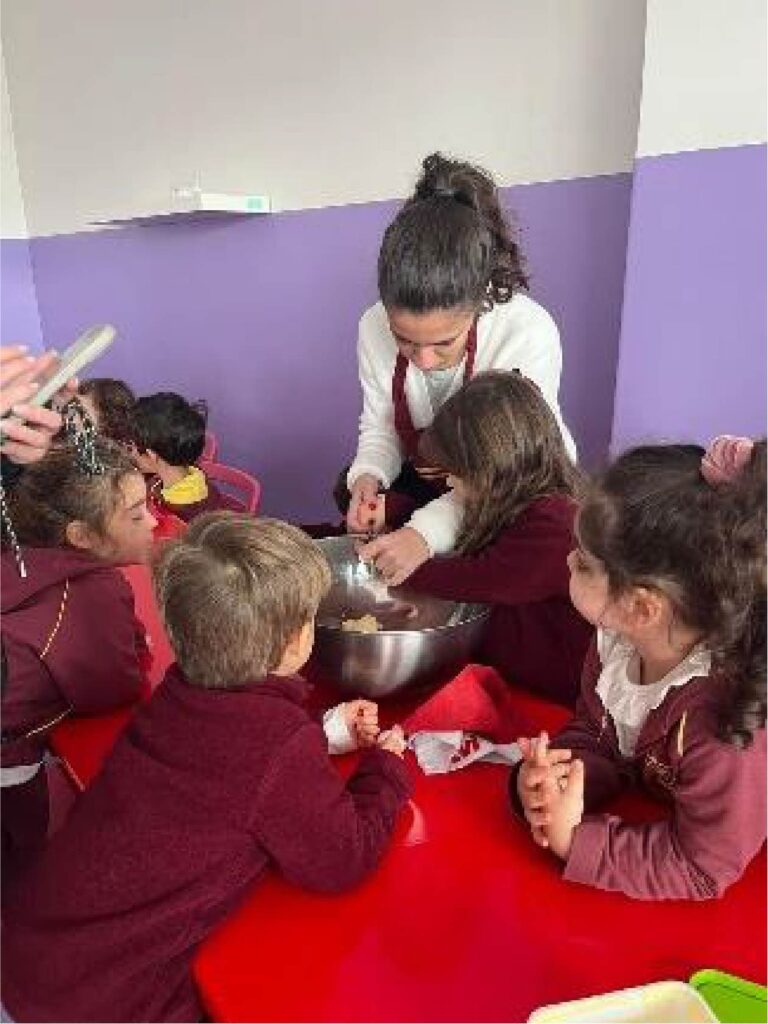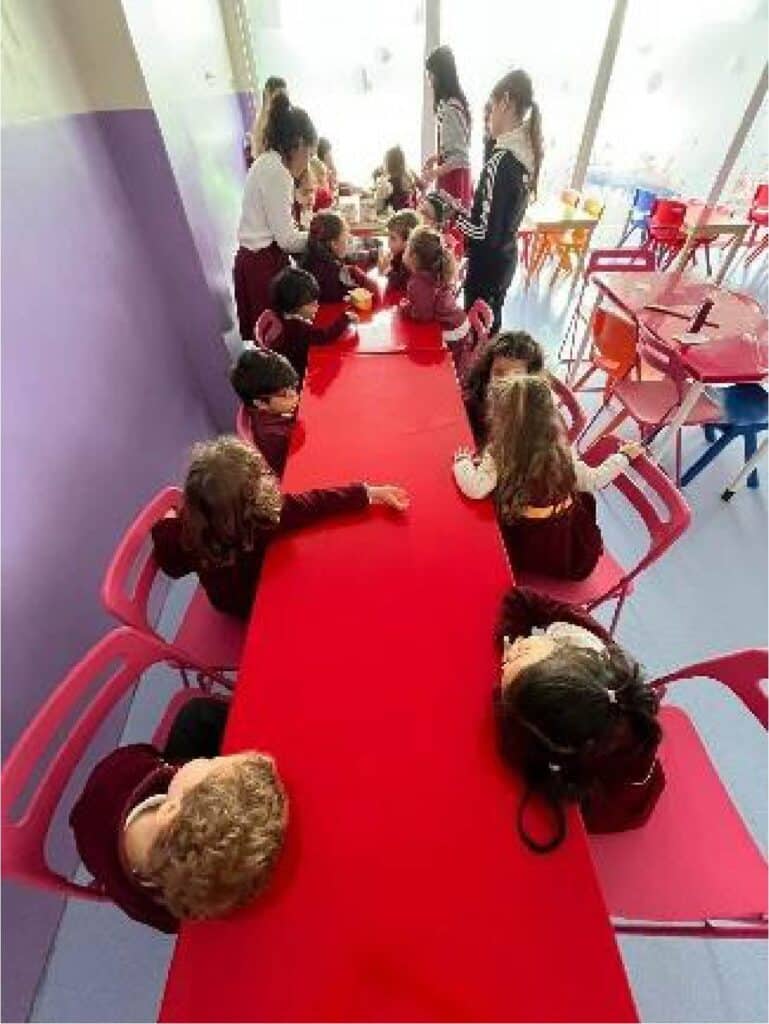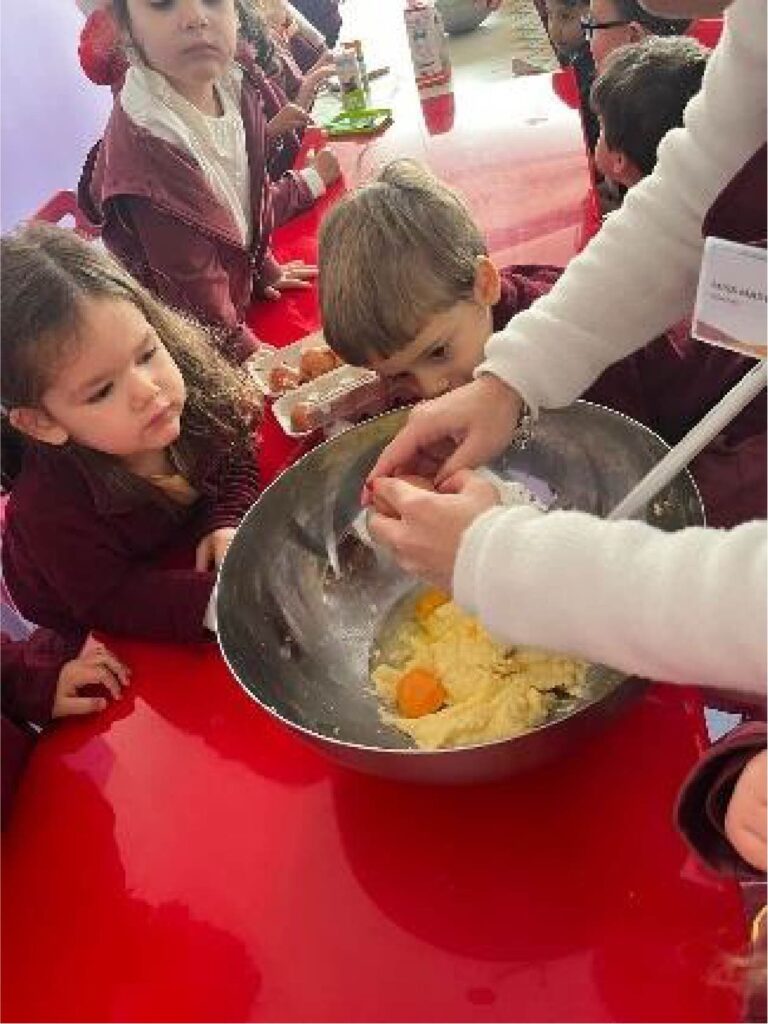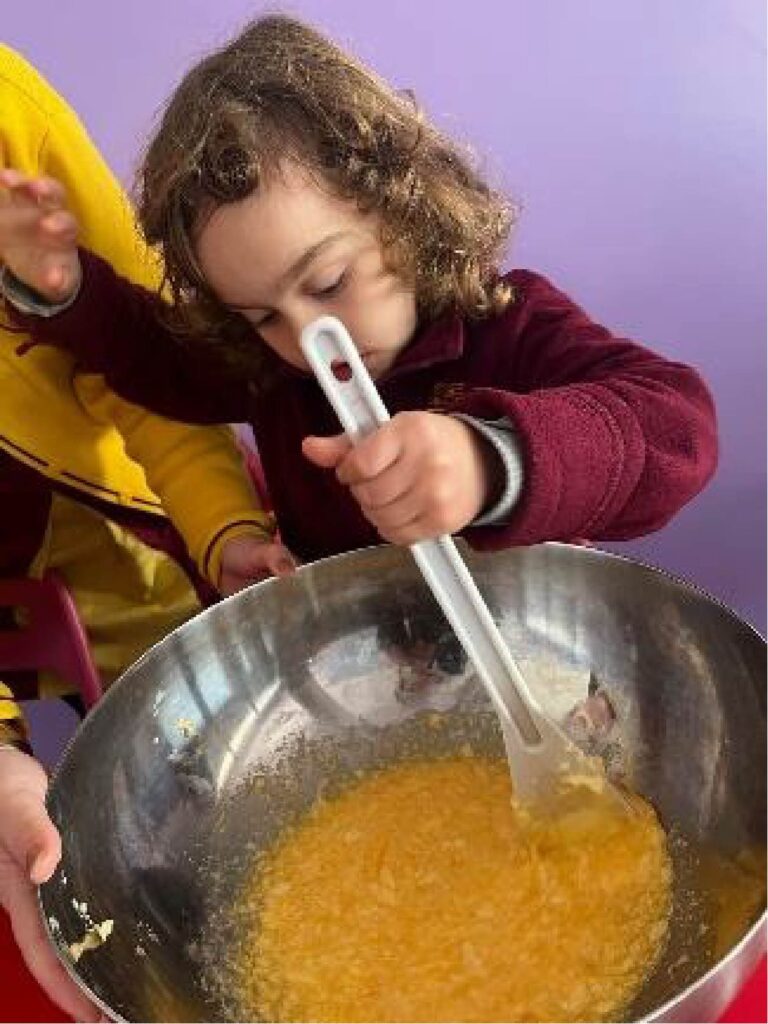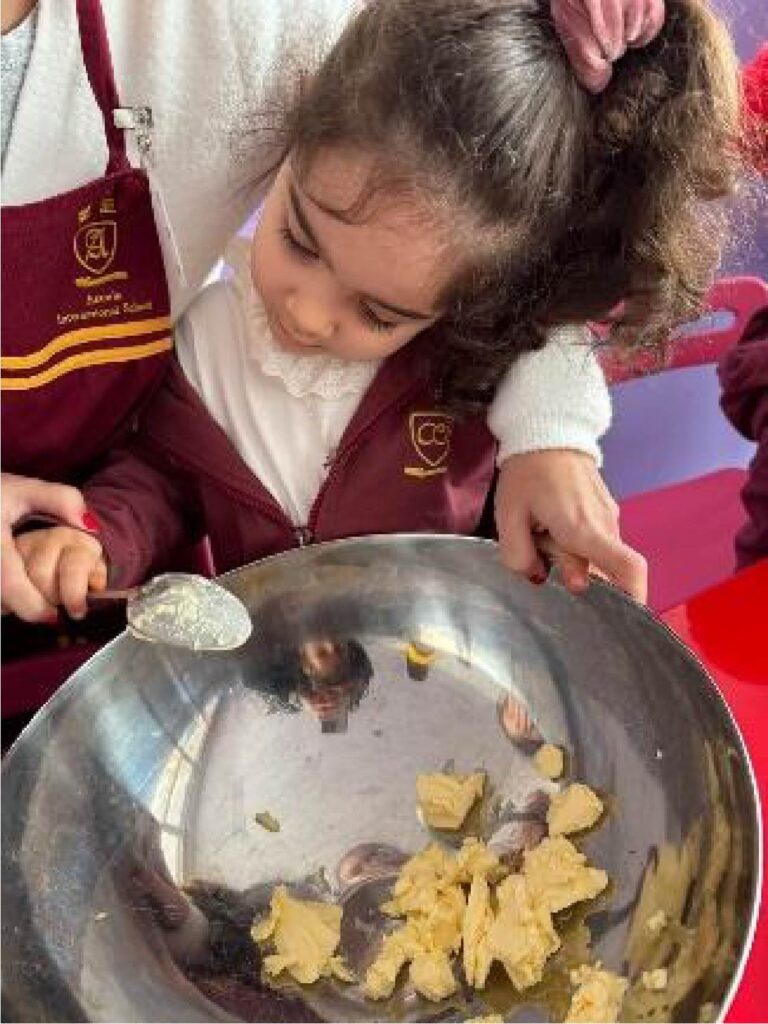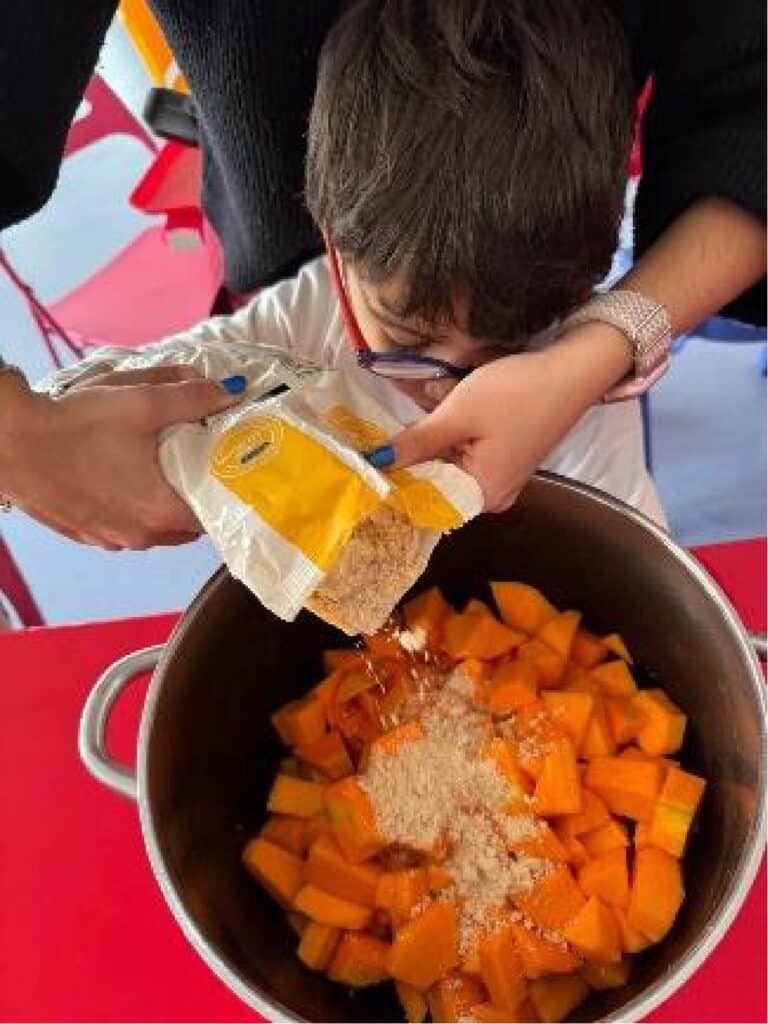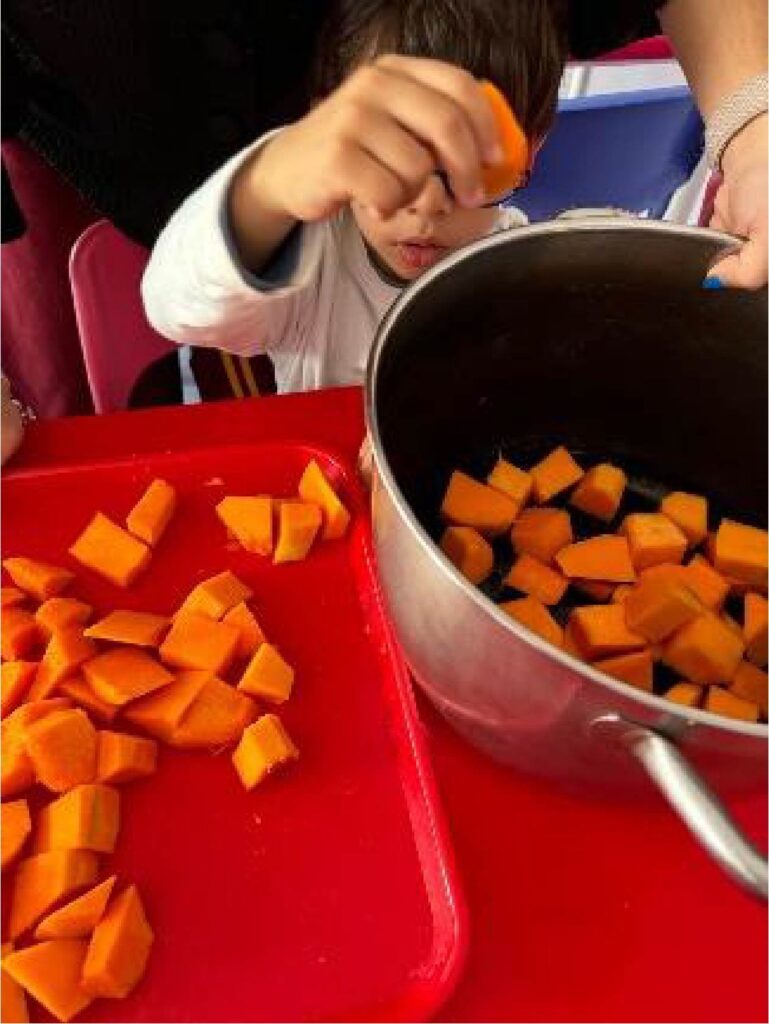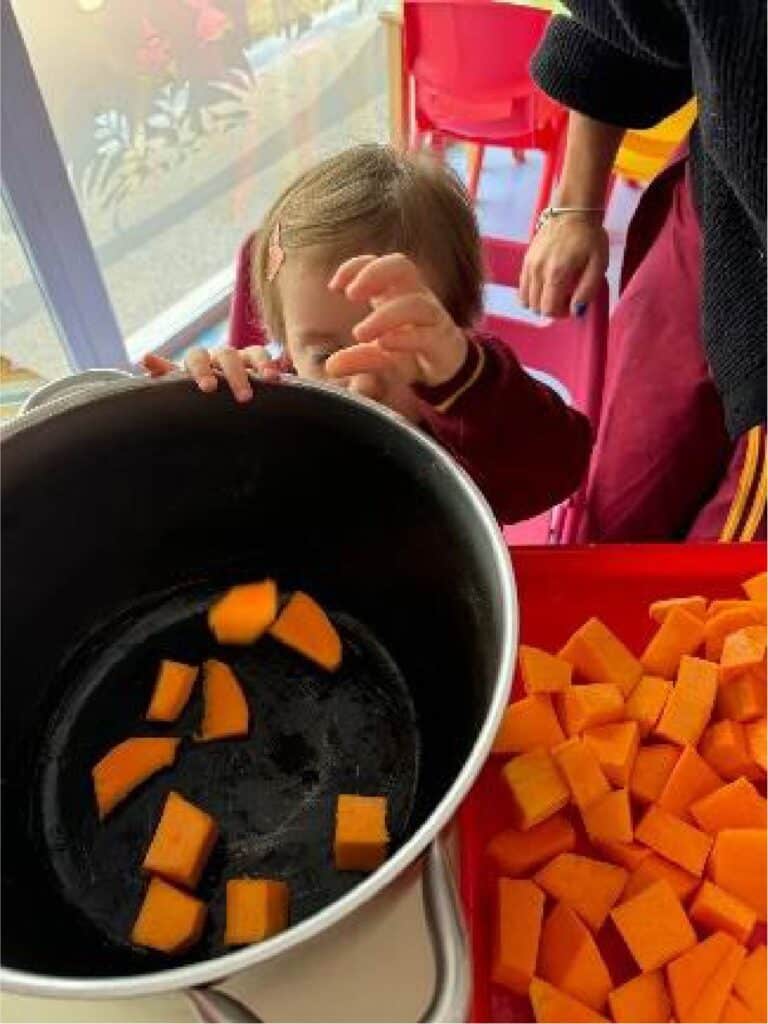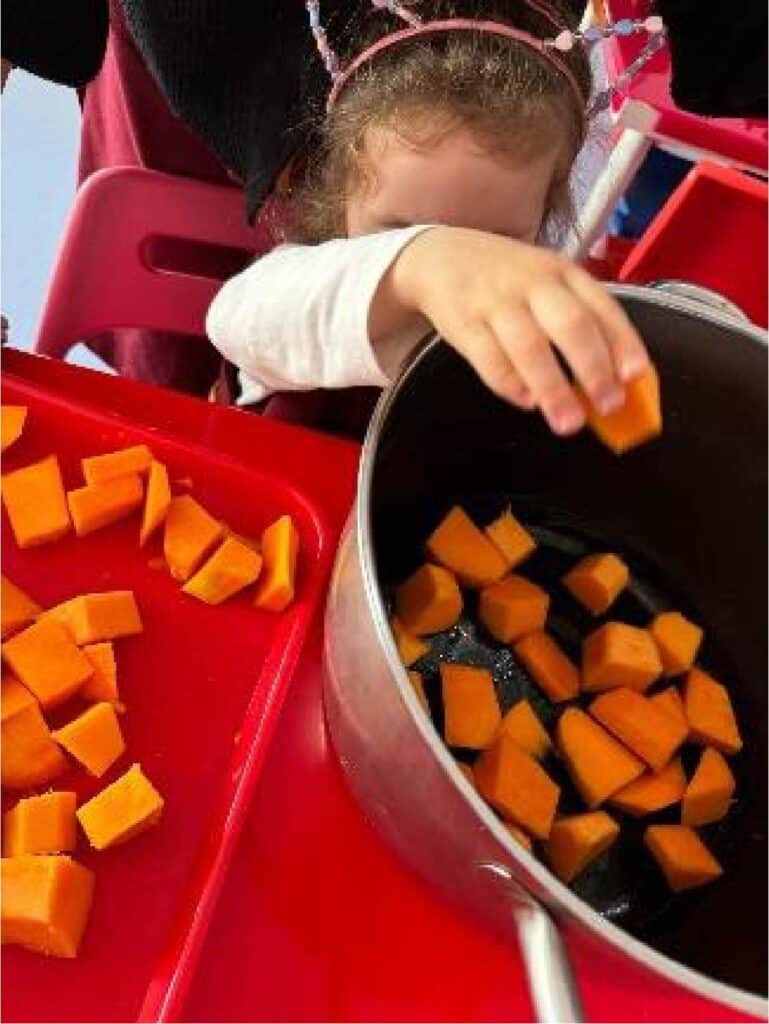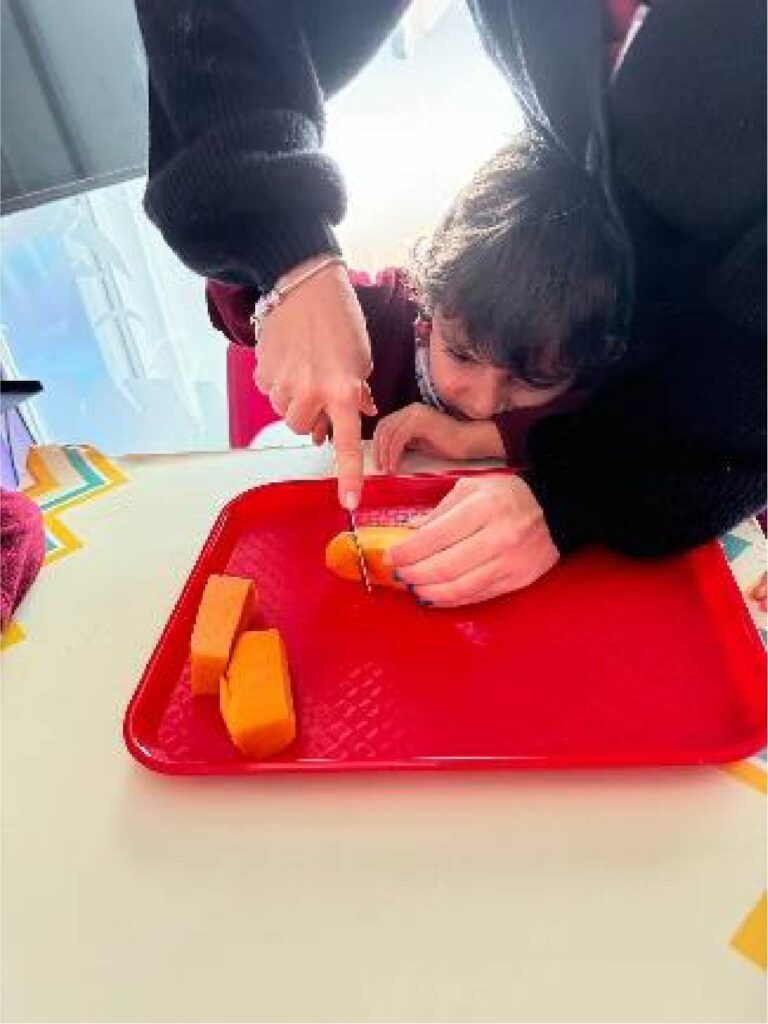Doing cooking activities with pre-school children is an enriching practice that goes beyond fun. This experience
contributes significantly to the cognitive, emotional and social development of the little ones, as well as encouraging healthier eating habits from an early age. Below we’ll explain some of its advantages.
- Motor Skills Development
While children measure, stir, cut with safe utensils or knead dough, they develop their fine motor skills. Activities like these strengthen hand-eye coordination, which is essential for future school tasks such as writing, drawing and cutting. - Practical and Cognitive Learning
The kitchen is a real learning laboratory. During these activities, children come into contact with basic concepts in maths (measuring ingredients), science (mixing substances) and language (following instructions in a recipe). This practical approach makes learning more meaningful and fun. - Stimulating Creativity and Autonomy
Involving children in food preparation stimulates creativity, allowing them to explore textures, colours and flavours. What’s more, taking part in a process like cooking strengthens their self-esteem and promotes autonomy, as they feel responsible for the outcome. - Promoting Healthy Eating Habits
When preparing meals or snacks, children become more likely to try new foods, especially fruit and vegetables. This direct interaction with ingredients can reduce resistance to certain foods and contribute to a more balanced diet. - Strengthening emotional bonds
The kitchen is a favorable environment for creating emotional memories. Parents, educators and children can take advantage of these moments to talk, laugh and strengthen emotional bonds in a collaborative and cosy environment.
We can conclude from this that cooking activities for pre-school children are not just an enjoyable pastime, but a
powerful tool for integral development. By combining learning, creativity and moments of affection, these practices form a solid foundation for children’s growth, both on a personal and social level.
By Mariana Dias
